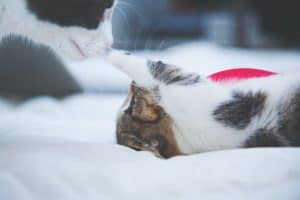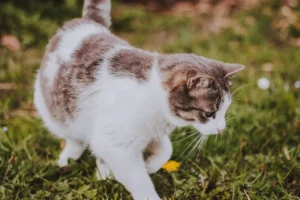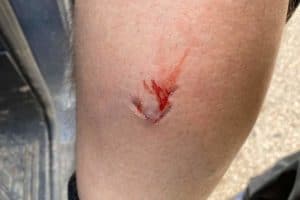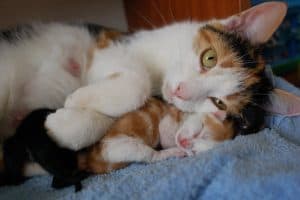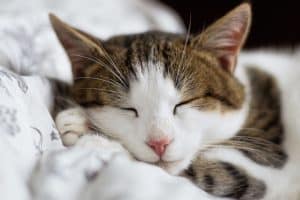Note: We may earn a commission from helpful, relevant links in our content. No cost to you. See our privacy policy.
Cats often amuse us with their strange and wild behavior. But sometimes, they may worry us. Why would cats run into walls?
The answer will depend on the cat and how they run into walls. Is the cat stumbling into stuff she should have seen or attempting to corner, slide out, and crash into walls? The former is concerning, and the latter is entirely typical.
Kittens would often bump into things, but if the cat is over ten years old, I would be more cautious and take it to the doctor at the first sign of an oddity. Older cats are less resilient than younger cats. Checkout would be preferable.
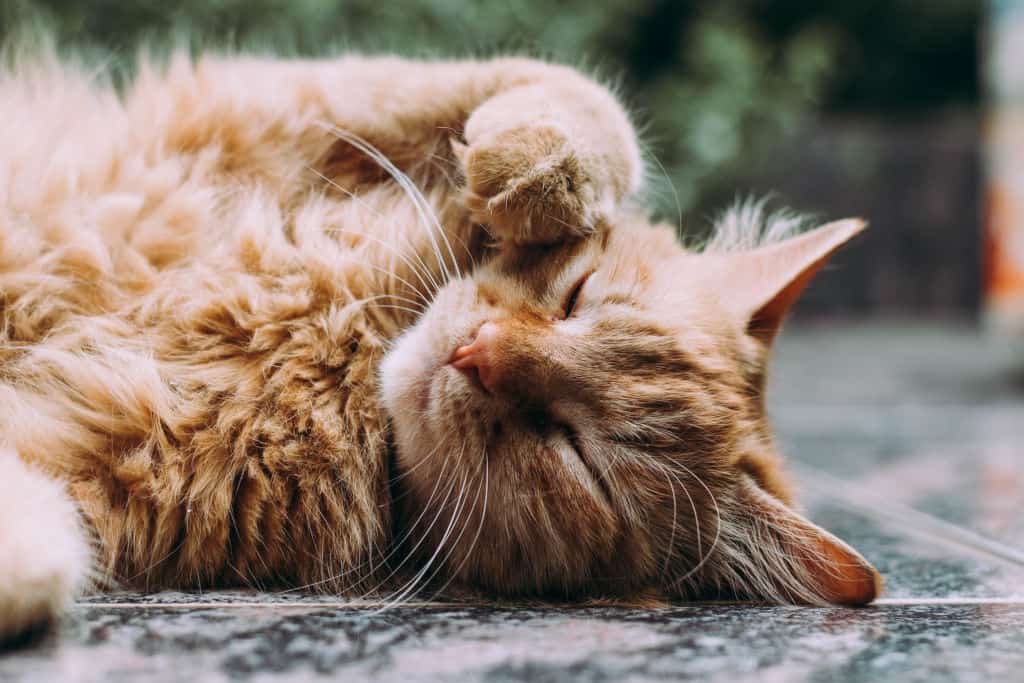
The Reason Why Cats Bump Into Walls
There could be many reasons your cat would bump into a wall. Here are some of them:
Boredom and Playfulness
Cats, like humans, can get bored and engage in wild play sessions. Adding more toys can be a simple solution to this behavior. For instance, my cat enjoys ninja jumps from walls during her playful bouts.
Wall Zoomies
Some cats experience ‘wall zoomies,’ where they’ll race around a room in a burst of energy and occasionally miscalculate their distance, leading to accidental wall collisions. Offering a play session during their hyperactive moments can divert their energy more safely.
Excess Energy
Cats with unspent energy from the day might exhibit unpredictable behaviors. Common expressions of this excess energy include running into objects face-first, falling off things, knocking items over, missing jumps, and of course, bumping into walls.
Environmental Changes
Factors such as a rearranged room or a misplaced piece of furniture can temporarily confuse cats. Such disorientation can cause them to miscalculate their paths and unexpectedly bump into walls.
Regularly interacting with your cat during changes can help them adapt more quickly, reducing accidental bumps.
Age-Related Behavior
Kittens, being young and still learning their environment, often bump into things.
However, such behavior isn’t typical for adult cats. If an older cat frequently collides with walls, it could be a sign of vision loss or another underlying health issue.
Health Concerns
If your older cat is running into walls and appears hurt, consider a vet visit. Such behavior could indicate vision problems, another health issue, or even be a sign of head pressing, a condition where a cat presses its head against objects due to neurological issues or pain.
Does It Hurt a Cat When It Bumps Into a Wall?
Cats are accustomed to colliding with things, but it all depends on how hard she strikes. Cats are pretty resilient, so most of them will be okay. However, you should take them to the vet if you see any limping or other signs that they are injured.
Kittens and puppies, like children, will occasionally receive injuries on their heads from rough play. Just check them out if you can get your hands on them. They are usually fine and eager to return to whatever game they are playing. They settle down by the age of three or four.
Examine her pupils to see if they are dilated, if blood is coming from any place, if her appetite is normal if she is shaking her head more, whether her physical appearance is normal, and so on. It’s okay if everything returns to normal after a short time.
Why Would Kittens Run Into Walls?
Kittens must learn to walk gracefully, just like adult cats. It may happen that they will bump into walls occasionally simply because they are still learning to walk and run, but there may be other reasons.
As kittens mature, their depth perception undergoes development, which means they’re still calibrating distance and speed, sometimes resulting in adorable mishaps with walls. It’s also worth noting that a kitten’s whiskers, their tactile navigational tools, are still learning to interpret various spatial cues. Until they perfect this, they might misjudge wall proximity.
If they’re still discovering their surroundings and slipping out on the tiles, I wouldn’t be too concerned unless it lasts more than a few days. However, the kitten may have difficulty seeing, so it may be best to take it to the vet if this behavior continues.
Whether you want to put it to the test, acquire a silent item like a ribbon, get their interest, and see if they can track it from different distances. One of my cats was blind for several days after being spayed due to the anesthetic used, and this is how we were taught to evaluate her vision.
Finally, a kitten might think it’s amusing to bump into things. I used to fall all the time as a kid purposefully, so it’s the same thing. If he doesn’t appear to be harming himself, you’re fine.
How to Spend Your Cat’s Energy (Calm a Hyperactive Cat)
Providing many sources of enrichment and outlets for high-energy cats is critical for creating their (and your own) productive lifestyle.
Mental stimulation from play is one way for cats to spend energy. Even if he isn’t sprinting until they’re out of breath, he is stimulated by stalking, pouncing, watching, chewing, bunny kicking, and so on.
I’d recommend one of those wand toys that looks like a fishing rod, and simply focusing his attention on something moving that mimics hunting for a reasonable period should help. Alternatively, you could get another cat, so they have someone to play with.
When it comes to kittens, that’s a whole different level.
Kittens will kitten, which means they will be nuts. But trying some of these toys on them, such as this GoCat Cat Catcher, will ensure they get enough playtime and exercise.
I like to wriggle them around corners, conceal them in hidden places throughout the house, and change movement speed while playing. Kittens have a lot of activity by nature, and if you don’t have another kitten or young cat to socialize with, you’ll have to act as their playmate sometimes.
Having them pursue and pounce on the “prey” is a terrific way for them to burn off some energy, and it’s a natural action for a cat to execute. A decent playtime session, once or twice a day, can tire them out in around 10-15 minutes. In the end, you’ll have a calm cat sleeping under your armpits.
Why Do Some Cats Scratch and Damage Walls?
Cats have a strong desire to scratch. They do it to show feelings such as joy or stress, mark objects with their scent, remove the dead part of their nails, and stretch more often than not. Cats also frequently scratch at surfaces to mark their territory.
Some suggest clipping the cat’s nails, but this may be inadvisable. Even though there’s nothing wrong with cutting a cat’s nails, you don’t have to do it. If a cat has access to things to scratch on, its claws won’t grow into the pads of its feet.
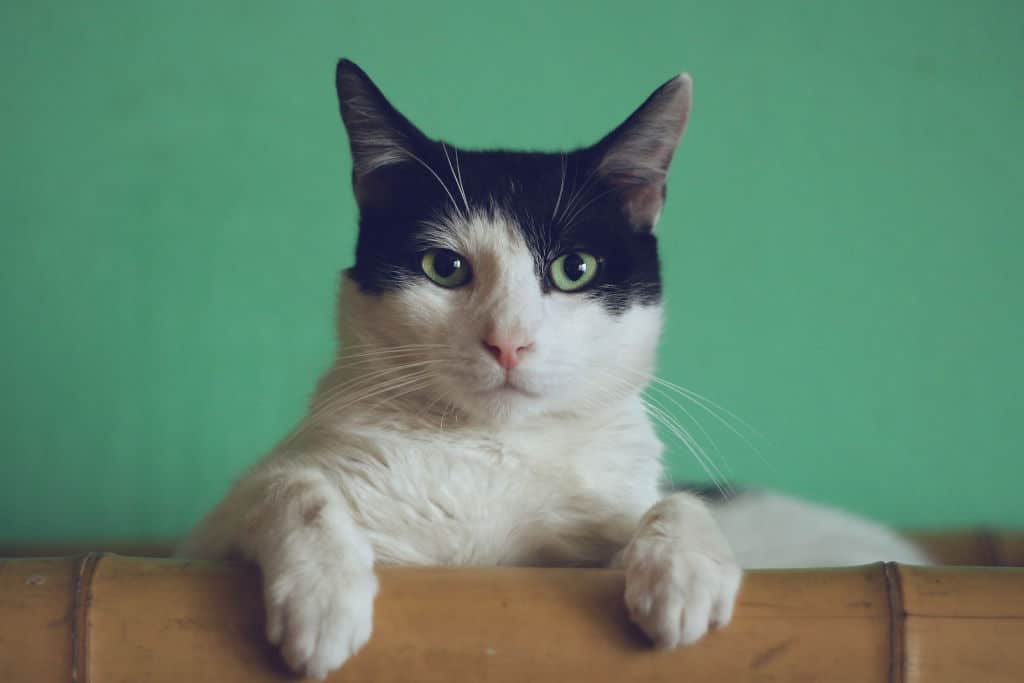
If you decide to clip the cat’s nails, do it carefully, with special tools, and only trim them.
The best solution is to get some robust cat scratching posts and set them near the walls where the cat scratches the most.
Cats may scratch walls due to previous scents. To erase the cat’s smell markings off walls where the cat should not and has been scratching, use a product like Feebrez or dilute vinegar and/or lemon water.
FAQs
Why do cats run around at night?
Cats are nocturnal, meaning they are most active at night. They are instinctual hunters who exhibit this behavior as kittens to improve their talents. Your cat will naturally soften with age, but this won’t solve your present situation. Play with them during the day and attempt to exhaust him.
You’re witnessing the cat’s workout routine, where most cats go berzerk around one or two A.M. Give them catnip around 30 minutes before bedtime, which may calm them down enough to sleep afterward. It also may help the cat relax if they get spayed/neutered.
Why do some cats meow at night?
My guess is that your cat isn’t getting enough excitement. I suggest that you keep your cat entertained. Play with her for 45 minutes before bed or until she gets weary or loses interest. Then repeat it 15 minutes before going to bed.
Why do animals put their heads on walls?
It’s okay to do it because it makes a good “pillow” where they sleep. If they start doing it all over the house, it could signify a neurological problem called “head pressing.” Not only does it mean they are sick, but it also shows that they are in pain when they do this.
Alex, a passionate animal lover, has experience in training and understanding animal behavior. As a proud pet parent to two dogs and three cats, he founded AnimalReport.net to share insights from animal experts and expand his knowledge of the animal kingdom.

